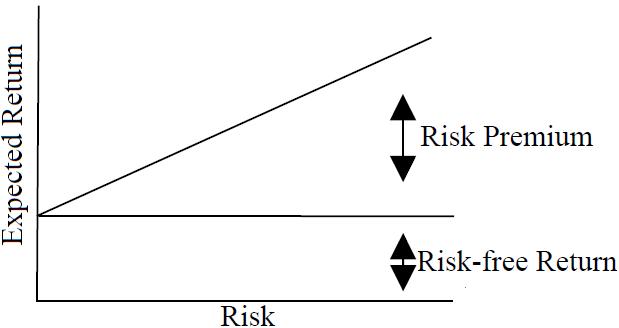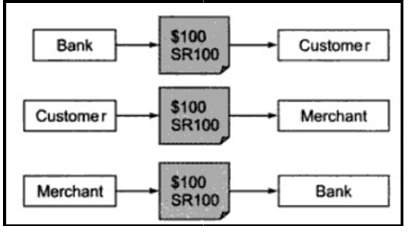Finance is the study of money management, the acquiring of funds (cash) and the directing of these funds to meet particular objectives. Good financial management helps businesses to maximize returns while simultaneously minimizing risks. Financial management is an integral part of overall management and not merely a staff function. It is not only confined to fund raising operations but extends beyond it to cover utilization of funds and monitoring its uses. These functions influence the operations of other crucial functional areas of the firm such as production, marketing and human resources. Hence, decisions in regard to financial matters must be taken after giving thoughtful consideration to interests of various business activities. Finance manager has to see things as a part of a whole and make financial decisions within the framework of overall corporate objectives and policies. Let us discuss in greater detail the reasons why knowledge of the financial implications Continue reading
Abey Francis
Risk-Return Trade off
Risk may be defined as the likelihood that the actual return from an investment will be less than the forecast return. Stated differently, it is the variability of return form an investment. Financial decisions incur different degree of risk. Your decision to invest your money in government bonds has less risk as interest rate is known and the risk of default is very less. On the other hand, you would incur more risk if you decide to invest your money in shares, as return is not certain. However, you can expect a lower return from government bond and higher from shares. Risk and expected return move in one behind another. The greater the risk, the greater the expected return. Financial decisions of a firm are guided by the risk-return trade off. These decisions are interrelated and jointly affect the market value of its shares by influencing return and risk of Continue reading
Career Planning Assistance by Human Resources Department
What is Career Planning ? Career planning is the process of one’s life work and involves evaluating abilities and interests, considering alternative career opportunities, establishing career goals, and planning practical development. Career planning is a deliberate process through which a person becomes aware of personal career related attributes and the lifelong sense of stages that contribute to his or her career fulfillment. The major focus of career planning is on assisting the employees achieve a better match between personal goals and the opportunities that are realistically available in the organization. Career programmers should not concentrate only on career growth opportunities. Practically speaking, there may not be enough high level positions to make upward mobility a reality for a large number of employees. Hence, career planning efforts need to pin-point and highlight those areas that offer psychological success instead of vertical growth. Career planning is not an event or end in Continue reading
Career Development from the Perspective of an Individual Employee
Career development comprises those personal improvements one undertakes to achieve a career plan. The personnel department may sponsor these actions or they may be activities that employees undertake independent of the department. That is career development may be organizational and individual. From an organizational career standpoint, career development involves tracking career paths. In contrast, individual career development focuses on assisting individuals to identify their major career goals and to determine what they need to do to attain these goals. Each person must accept responsibility for his own career; assess his own interests, skills and values and take the step required to ensure a happy and fulfilling career. It is unwise to leave these jobs to others. In the case of individual career development, the focus is entirely on the individual and includes his career outside the organization as well as inside. So while organizational career development looks at individuals Continue reading
An Overview of Electronic Cash
The World is moving rapidly with vastly changing technological developments and innovations. We are currently experiencing an era, where everything is getting automated and digitalized. Along with this technological transition, international monetary system is one significant aspect that is getting transferred from its current state of paper based monetary system to electronic monetary/cash system. According to the 1994 report of European Central bank, electronic cash can be defined as an electronic store of monetary value on a technical device that may be widely used for making payments to undertakings other than the issuer without necessarily involving bank accounts in the transaction, but acting as a prepaid bearer instrument. Like the serial number on general dollar bills, electronic cash issued by a bank or any other institution will also consist a unique number and will represent a specified value of real money. Hence with the current accelerated phase of changes and Continue reading
Process of Salary and Wage Fixation
Steps involved in determining wage and salary rates are as follows : 1. Job Analysis: A job analysis describes the duties, responsibilities, working conditions and interrelationships between the job as it is and the other jobs with which it is associated. Job descriptions are crucial in designing pay systems, for they help to identify important job characteristics. They also help determine, define and weigh compensate factors (factors for which an organization is willing to pay-skill, experience, effort and working environment). After determining the job specifications, the actual process of grading, rating or evaluating the job occurs. A job is rated in order to determine its value in relation to all the other jobs in the organization which are subject to evaluation. The next step is that of providing the job with a price. This involves converting the relative job values into specific monetary values or translating the job classes into Continue reading




